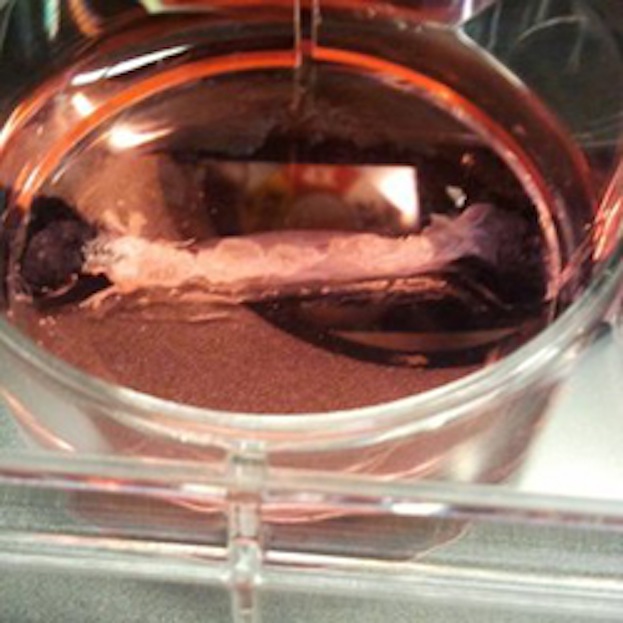
First Test-Tube Burger Eaten in London

The world's first lab-grown burger finally went under a much-anticipated taste test today (Aug. 5) in London. The verdict? It has a mouthfeel like meat but it's missing the fatty, juicy flavor of the real thing, two critics said.
In a broadcast of the tasting, one of the brave eaters, Austrian nutritionist Hanni Ruetzler, said, "It's close to meat," but added, "It's not that juicy." American food author Josh Schonwald agreed, saying, "The bite feels like a conventional hamburger," before noting that it was lean and lacking fat.
Humans' taste for animal meat comes at a high environmental price, and the mastermind behind the project, scientist Mark Post, of Maastricht University in the Netherlands, is hoping to develop the test-tube meat as a sustainable food source. The synthetic beef patties that were served up today had been made from thousands of muscle strips, each the size of a grain of rice, grown from cow stem cells in a laboratory.
In a video, Google co-founder Sergey Brin also revealed himself as the project's secret financial backer who donated $330,000 to the fake meat's creation.
Follow Megan Gannon on Twitter and Google+. Follow us @livescience, Facebook & Google+. Original article on Live Science.
Sign up for the Live Science daily newsletter now
Get the world’s most fascinating discoveries delivered straight to your inbox.










